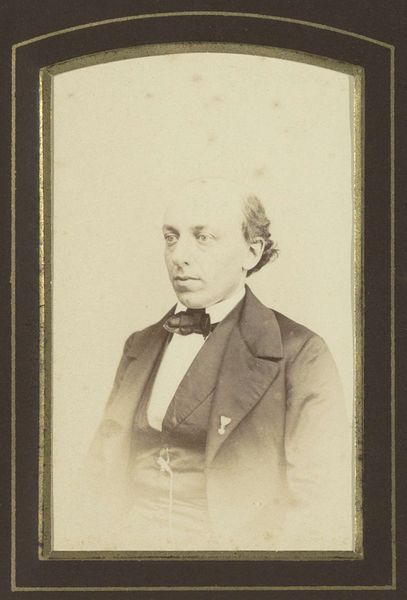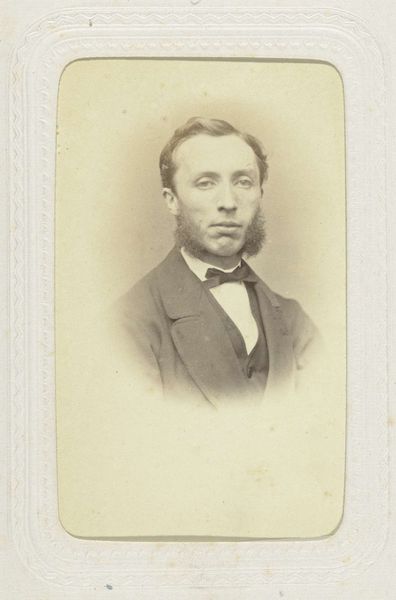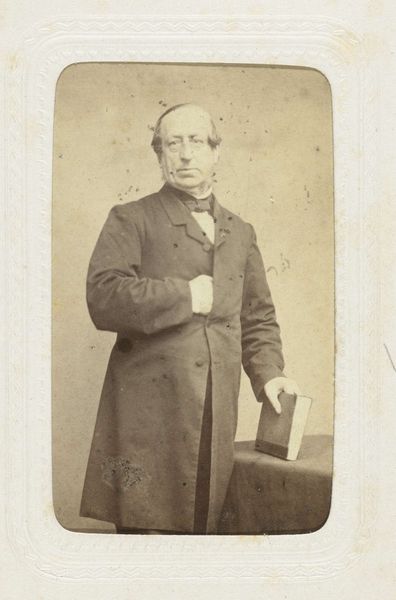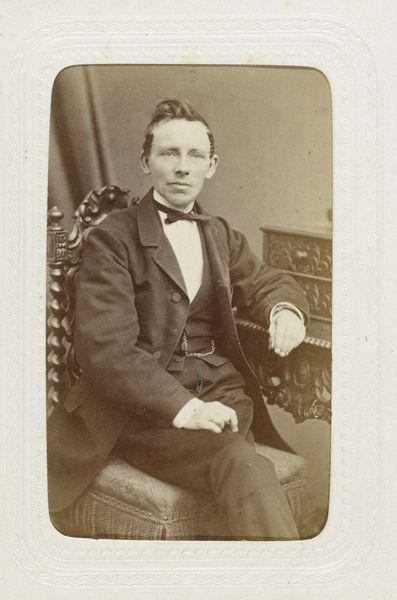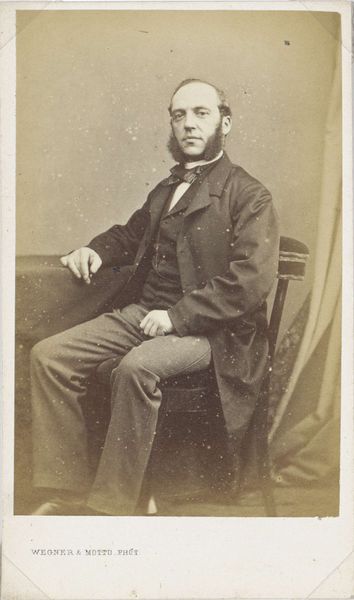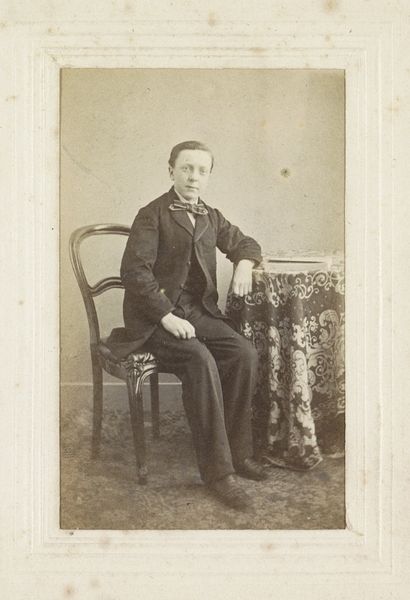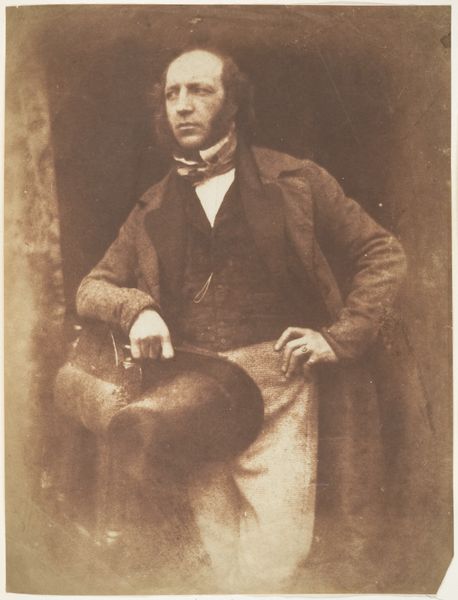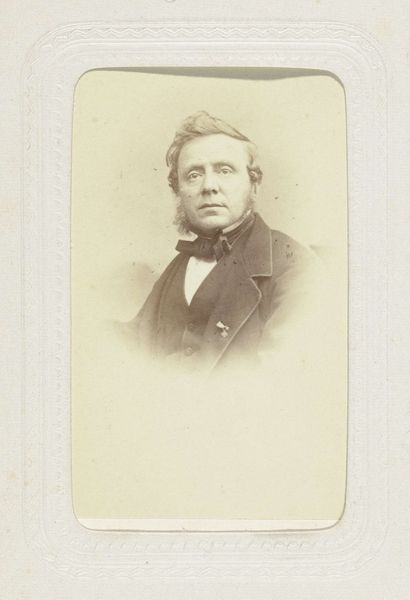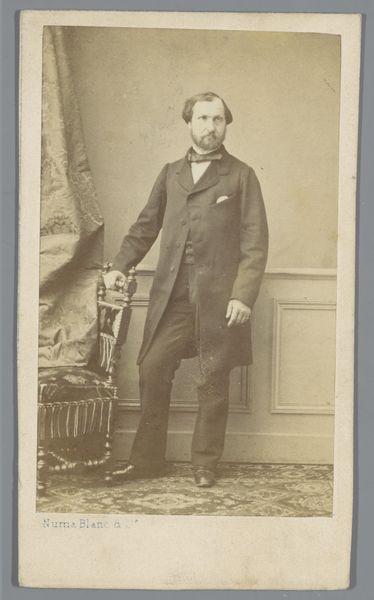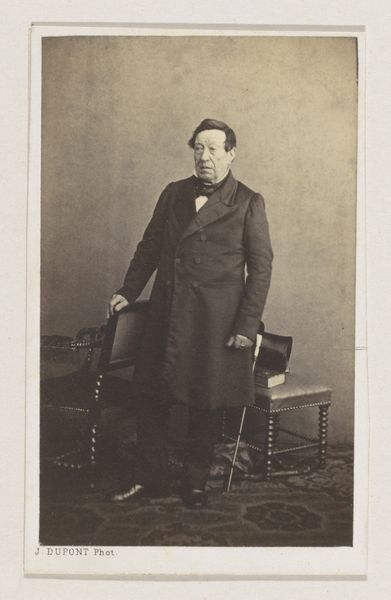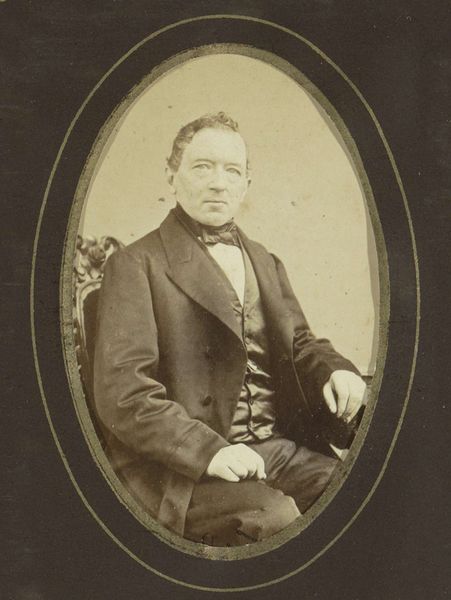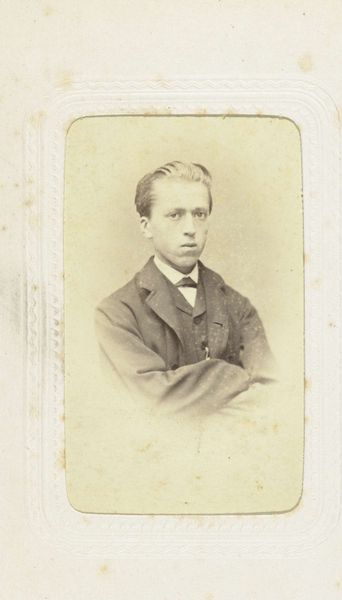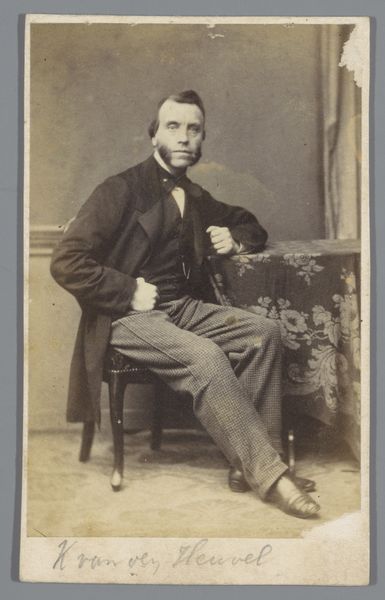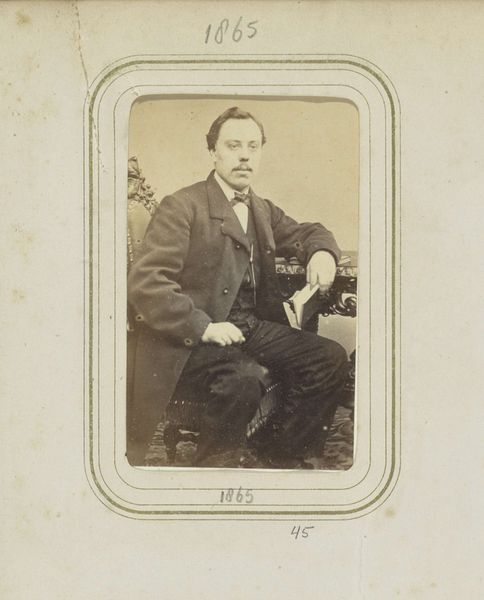
daguerreotype, photography
#
portrait
#
daguerreotype
#
photography
#
historical photography
#
19th century
#
academic-art
Dimensions: height 222 mm, width 168 mm
Copyright: Rijks Museum: Open Domain
Editor: This is "Studio Portrait of a Young Man, Paris" made in 1853 by Eduard Isaac Asser, it is a daguerreotype. The sepia tones and slightly blurred effect really evoke a sense of stillness. It almost feels like peeking into a different era. What stands out to you? Curator: The formal studio portrait was crucial in shaping and democratizing access to image production. Before photography, portraiture was for the elite. The rise of photography changed the public’s understanding of how one can memorialize their existence. Have you considered the subject's self-presentation, especially within the context of rapidly changing social roles in 19th-century Paris? Editor: I hadn't considered it like that, so this image isn't just a memento, but a display of social status? A form of social participation in a sense? Curator: Precisely! Photography offered new avenues for constructing and performing identity. Consider the implications of its availability across social classes and the democratization of image production within Parisian society. This wasn't merely documentation; it was active engagement with social and cultural forces, defining the visual language of a burgeoning industrial society. Do you see the connection to, say, changing ideas about what it meant to be a “gentleman” at the time? Editor: Now that you mention it, his tailored attire, the carefully styled hair, they're all part of that constructed identity! I'm beginning to think of photographs from that time as a statement rather than a document. Curator: Exactly. Considering historical, social, and technological context lets us appreciate this work for its cultural importance. I think that understanding adds to my enjoyment of this work! Editor: I totally agree. It’s not just an old photograph, but a tangible connection to how people defined themselves and participated in a rapidly changing society. Thank you!
Comments
No comments
Be the first to comment and join the conversation on the ultimate creative platform.
